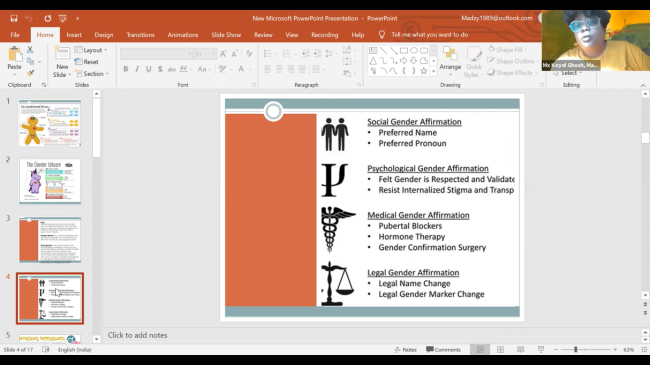Sex, Gender, and Sexuality are an integral part of human life. And building the understanding around these concepts and ideas among young people is critical to promote gender equality and justice, to create safer spaces for different others, challenge patriarchy, and become comfortable with themselves.
This week at the YnD Fellowship, Koyel Ghosh, Indrani Banerjee, and Shreosi Ray from Sappho for Equality was invited to facilitate a session with YnD fellows.
Sappho for Equality, established in October 2003, is the only registered organization in Eastern India that works for the rights and social justice of sexually marginalized women and transmen (female to male transpersons). It uniquely works to create bridges between the so-called normative and non-normative populations in our society and positions gender-sexuality within existing development discourses.
Ms. Banerjee started the session helping fellows understand why it is important to work for people who identify themselves as minority gender identities? Minority gender groups like transmen and sexually marginalised women are often victims of discrimination from social systems and structures including family, institutions, and society at large. Therefore, there is a need for having open conversations/dialogues and the need for questioning the existing societal structures/norms that have been influencing the concept of gender for ages.
This was followed by a discussion on sex, gender, and sexuality and how these were not biological constructs but socially constructed, leading to speculations on the issues of intersex, gender-based violence, marginalization, and discrimination.

Ms. Ghosh, the other facilitator, introduced gender identity, gender expression, and biological sex to the fellows through gender bread and gender unicorn person. ‘Gender Identity is our nnternal experience and naming of our gender. It can correspond to or differ from the sex we were assigned at birth’, she said. The session was concluded by Shreosi Ray, who helped fellows in understanding sexuality. Fellows tried linking these concepts with the idea of Democracy and Everyday Life by asking questions around activism, gender expressions and affiliations, and social constructs.